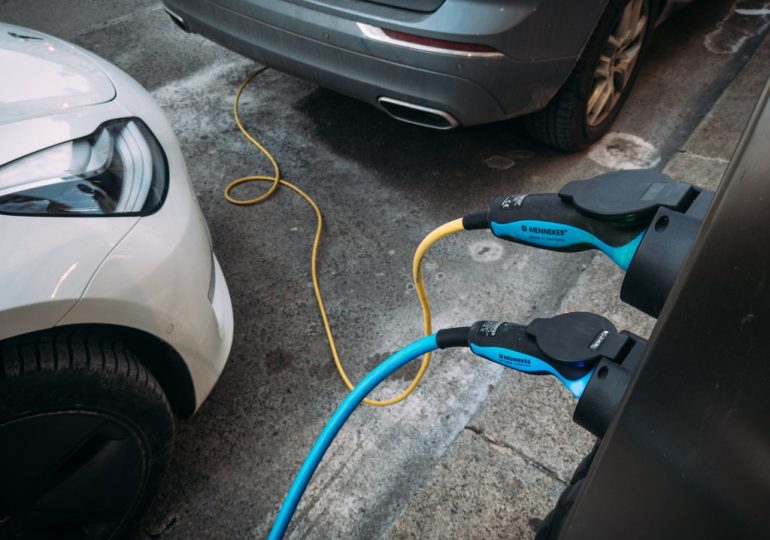Connecticut regulators have approved the first round of pilot projects in a new program aimed at accelerating innovation across the electric grid.
Seven tech companies have received the go-ahead to partner with utilities Eversource or United Illuminating to test the potential of their hardware or software to help decarbonize the state’s electric grid.
The Innovation Energy Solutions Program is part of a broader effort by the state Public Utilities Regulatory Authority (PURA) to modernize the grid. It encourages utilities to embrace new technology while limiting the risk to ratepayers.
The selected companies were winnowed from an initial 50 applications. While some of the technologies have been deployed successfully elsewhere, none have been tested in Connecticut, said Julia Dumaine, PURA’s supervisor of strategy and operations. The projects, funded at a total of just under $10 million, were chosen after a multi-step review process that included scrutiny from a nine-member advisory council.
“Having these increasingly stringent reviews minimizes ratepayer risk,” Dumaine said. “These are technologies that have demonstrated the potential to provide real ratepayer and grid-level benefits.”
None are startups in the research and development phase — they are all prepared to scale up at a later date, she said.
After the pilots launch, each company has a set of metrics they must meet and will be required to report on them quarterly, said Eli Asher, a senior manager at Stratagen, the consulting firm responsible for developing and administering the program.
“We will be gathering data on how effective the projects are,” he said. “At the end of the deployment period, we’ll have a cost-benefit analysis to inform the recommendations as to whether they should be fully deployed at scale across the state.”
The program allows the utilities to recover their costs for testing these new technologies, something they might be reluctant to do otherwise.
“I think it’s great to have regulators backing a program like this,” said Alex Ghanem, commercial manager for Piclo, one of the companies participating. “It’s a risk to test things out and it costs the utilities resources to do so. I think this is a great framework.”
Based in London, England, Piclo will work with United Illuminating to launch a grid flexibility market. They will recruit owners, operators and managers of any type of distributed energy resource — battery storage, electric vehicles, and other types of dispatchable power sources commonly known as DERs — to operate in an independent marketplace in return for compensation.
Piclo will work with DER aggregators on their platform. They will provide United Illuminating with local flexible DERs that represent alternative — and ideally, cheaper — places to buy energy than on the wholesale market when the utility has insufficient supply to meet customer demand.
Piclo is already operating in New York in partnership with National Grid.
“The penetration of DERs is disrupting the grid and the utilities need to pull on multiple different levers to manage that,” said John Bayard, Piclo’s chief commercial officer. “Grid flexibility marketplaces are one of the tools they can use.”
Another British company, Kraken, which operates a cryptocurrency exchange, will also work with United Illuminating to help them better manage DERs.
Kraken’s platform “can connect to any kind of DER — electric vehicles, heat pumps, smart thermostats,” said Devrim Celal, chief executive officer. “We can connect to them in an effective way, monitor them in real time and control what they do.”
This pilot will focus on customers that use heat pumps and drive electric vehicles. The company will recruit ratepayers to sign up to use their mobile app, which will give Kraken access to their DERs. For example, they might tell the company what kind of EV and charger they have, and what time of day they need to have their car charged by.
“We will determine when is the best time to charge their cars to achieve low-carbon emission targets, and in exchange we’ll give them a reward,” Celal said.
The pilot is intended to help the grid run greener and more cheaply.
An EV charging software company called AmpUp will work with Eversource to try to balance electricity demand during peak periods by decreasing load at electric vehicle chargers. Based in Santa Clara, Calif., AmpUp will provide incentives to compensate charging station owners for decreasing charging during peak periods.
They are still working out what level of incentive might stimulate participation, as well as whether it might appeal to a workplace with four chargers as much as to a company operating a fleet of vehicles, said Matt Bloom, director of partnerships.
“We’re really excited,” he said. “It’s good to see the regulators take a little risk. This is a good way to innovate, see what we learn and whether it’s something Eversource could adopt long term.”
Connecticut will tap clean energy technology to find emission-cutting efficiencies on grid is an article from Energy News Network, a nonprofit news service covering the clean energy transition. If you would like to support us please make a donation.
Leave a comment






